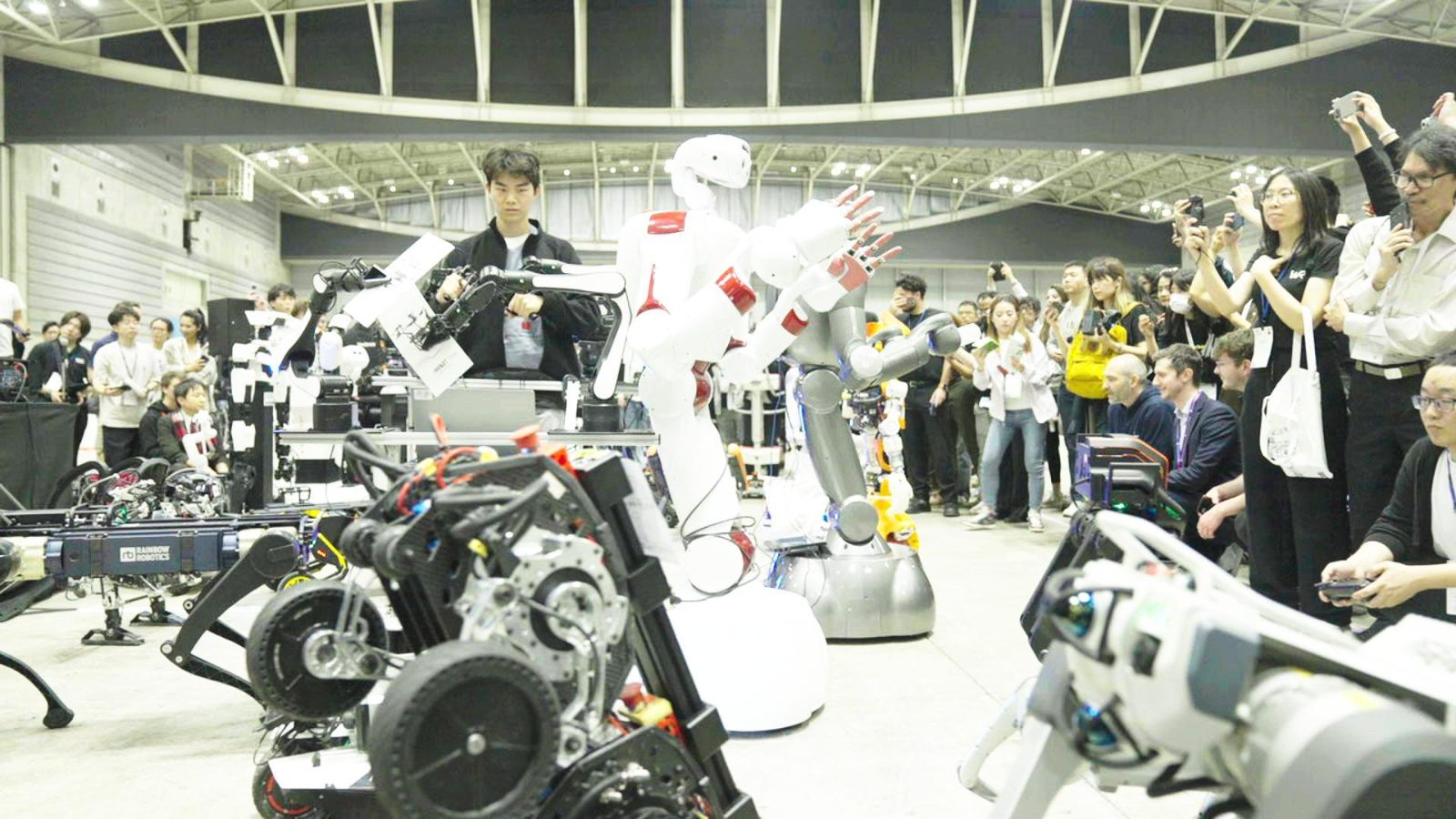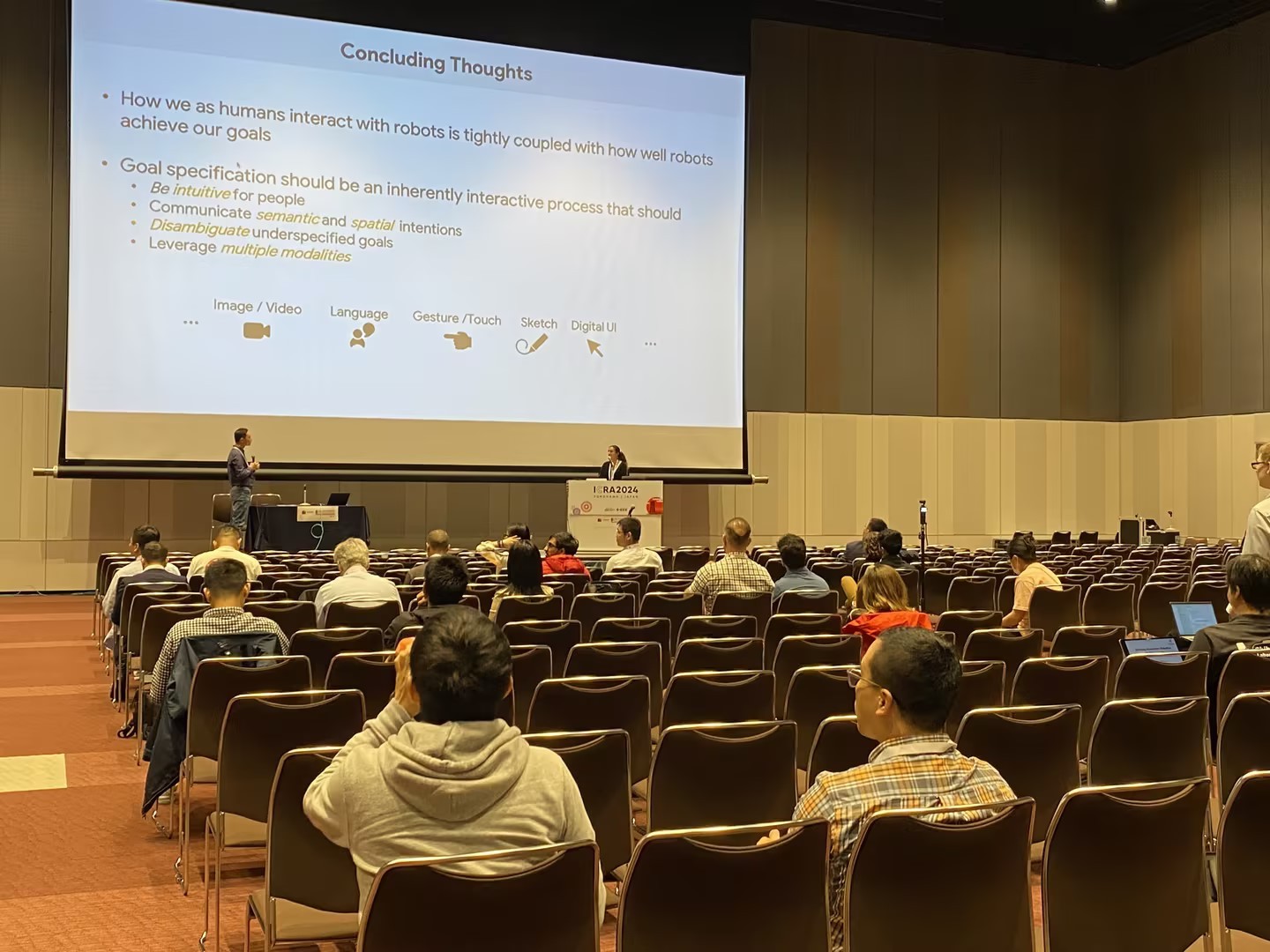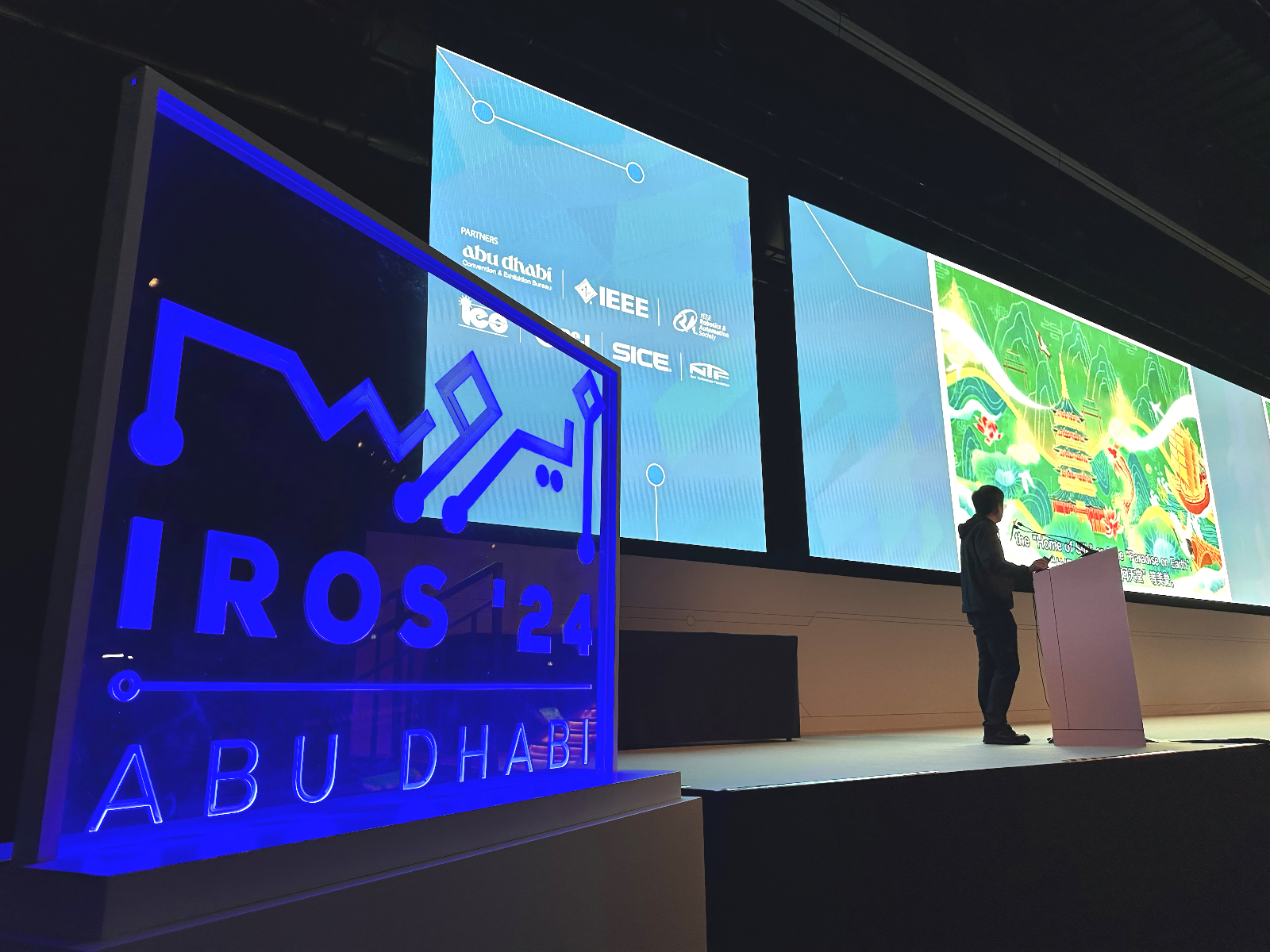Based on an in-depth interview conducted by NOKOV Motion Capture with Professor Wang Hesheng of Shanghai Jiao Tong University, Chairman of the IROS 2025 Conference.
In the robotics community, a “top-tier conference” generally refers to an international event recognized for its high academic impact, strong global participation, and comprehensive coverage of cutting-edge research. While there is no official definition, the IEEE International Conference on Robotics and Automation (ICRA) and the IEEE/RSJ International Conference on Intelligent Robots and Systems (IROS) are widely considered the flagship conferences of the field. Their broad disciplinary scope, large-scale participation, and lasting influence on robotics research make them the most prestigious platforms for academic exchange and innovation.

ICRA 2024 Robotics Competition
ICRA, launched in 1984 by the IEEE Robotics and Automation Society (IEEE RAS), was initially held in the United States before expanding globally. Past editions include Taipei (2003), Shanghai (2011), Hong Kong (2014), and Xi’an (2021). In 2024, ICRA took place in Yokohama, Japan. Traditionally, the conference rotates across the Americas, Europe, and Asia—returning to Asia every three years—serving as a vital stage for showcasing the latest research achievements.
IROS, founded in 1988 by the Robotics Society of Japan (RSJ) and IEEE, was designed to complement ICRA. While ICRA is typically held in May, IROS is scheduled for October, allowing faster dissemination of new research. Past events include Beijing (2006), Taipei (2010), and Macau (2019). In 2025, IROS will be hosted in Hangzhou, China, with Prof. Hesheng Wang as General Chair. This marks the first time a scholar from mainland China leads the conference, a milestone for the country’s robotics research community and a moment that positions Hangzhou at the center of global robotics.
Although both ICRA and IROS are premier robotics conferences, each has its own distinct focus:
ICRA (International Conference on Robotics and Automation) covers a broad spectrum of robotics and automation research, including perception, modeling, control, planning, and automation systems.
IROS (Intelligent Robots and Systems) emphasizes intelligent robots, complex system integration, and innovations at the intersection of artificial intelligence and robotics.
In addition, IEEE RAS also organizes CASE (Conference on Automation Science and Engineering), focusing on automation science and engineering. Several other specialized conferences further enrich the landscape:
RSS (Robotics: Science and Systems) – A highly influential single-track conference originally founded by RS , now increasingly international.
RoboSoft – Focused on soft robotics.
ROBIO – Dedicated to bionic robotics.
These specialized conferences contribute to the diversity and depth of global robotics research.

ICRA 2024 workshop
Event Details
ICRA: Annually in May.
IROS: Annually in October.
Both conferences attract thousands of participants from more than 50 countries, with attendance averaging around 5,000. They serve not only as venues for presenting groundbreaking research but also as hubs for academic, industrial, and cross-disciplinary collaboration.

IROS 2024 ABU DHABI
Since the founding of ICRA in 1984 and IROS in 1988, these two flagship events have witnessed nearly four decades of rapid advances in robotics worldwide. The upcoming IROS 2025 in Hangzhou will be a global milestone, offering a platform for academic exchange and a catalyst for driving robotics applications and industrial transformation.
As a Gold Sponsor and co-organizer of the NGSP at IROS 2025, NOKOV is not only investing in the present but also fostering the future of robotics. We remain dedicated to supporting research and scholars, and we look forward to partnering with the global community in Hangzhou to continue this journey of exploration.